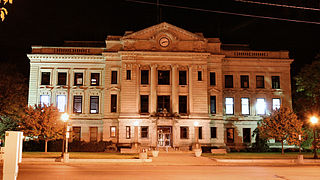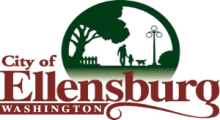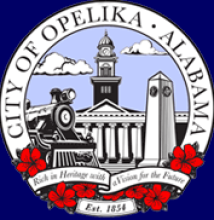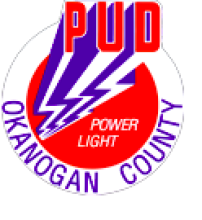Fast, affordable Internet access for all.
utility
Content tagged with "utility"
Central Missouri Coop To Offer Gigabit, Upgrades Speeds With No Price Increase
Residential customers of Co-Mo Connect in Missouri will see a free upgrade this spring. In a December announcement, the cooperative stated it will also begin offering gigabit Internet service for $99.95 per month.
“There are no strings attached,” said Randy Klindt, Co-Mo Comm's general manager. “We’re doing this because we can, because the network has the capacity and we received a good deal on bandwidth. We’re passing those speeds and savings onto our subscribers.”
New residential service options:
- 5 megabits per second for $39.95 a month;
- 35 mbps (currently 20 mbps) for $49.95 a month;
- 100 mbps (currently 50 mbps) for $59.95 a month;
- 1 gbps (currently 100mbps) for $99.95 a month.
According to the announcement, small businesses will also receive speed increases with no increase in price. Klindt notes that Co-Mo prides itself on gimmick-free pricing:
“Nothing is going to decrease after six months or whatever the other companies do,” he said. “And subscribers don’t have to do anything to get the extra speed. If you’re on the 20, 50 or 100 megabit tier right now, we’re simply going to turn up your speed when this becomes available sometime this coming spring.”
We reported on Co-Mo in 2012, as the cooperative began expansion of services. At the time, Co-Mo had been passed over for American Recovery and Reinvestment Act (ARRA) funding. Coop members wanted to improve the broadband situation for better economic opportunity so Co-Mo pressed on without federal funding. The plan to bring FTTH to all 25,000 coop members has four phases with completion scheduled for 2016.
Auburn Essential Services; A Workhorse in Northeast Indiana Saves Jobs, Serves Public
In 1985, Auburn Electric became one of the first communities in the midwest to deploy fiber. At the time, the purpose was to improve electric and voice systems substation communications within the municipal utility. That investment laid the foundation for a municipal network that now encourages economic development and saves public dollars while enhancing services.
Auburn expanded its fiber network beyond electric systems in 1998. The utility began using the network to serve city and county government operations. It is not well known, but Auburn offered gigabit service to its public sector customers way back in 1998.
The benefits from the deployment prompted community leaders to develop an Information Technology Master Plan in 1998 that would answer the question of what other ways the fiber could serve the community? As part of the Master Plan, Auburn leaders collected information from other communities that were capitalizing on their own local fiber. While Auburn made no immediate plans, they kept an open mind, waiting until the time was right.
In 2004, Cooper Tire and Rubber (now Cooper Standard) was about to be sold from its parent company. The $1.6 billion auto component manufacturer needed a data center but bandwidth was insufficient and inconsistent in Auburn. Cooper considered leaving because the incumbents, Mediacom and AT&T, could not or would not provide the broadband capacity the company needed. If Cooper left town, an estimated $7 million in wages and benefits from 75 high-paying tech jobs would also leave. At the time, Auburn was home to 12,500 people.

According to Schweitzer, the City tried to persuade the telephone company to find a solution with Cooper but the two could not reach an agreement. Rather than lose Cooper, the City of Auburn stepped in to fill the connectivity gap in 2005.
In a 2007 interview with Public Power magazine, Schweitzer noted advantages in Auburn that facilitated the project:
In Indiana, Auburn Built Fiber Network Incrementally - Community Broadband Bits Episode 77

In Kansas, Chanute One Step Closer to FTTH
Chanute's City Commission voted on November 25th to move forward with plans for a FTTH network. The community of approximately 9,000 began installing fiber in 1984 for electric utility purposes. They have slowly expanded the network throughout the community. Chanute's fiber and wireless broadband utility now serves government, education, and several businesses. We documented their story in our case study, Chanute’s Gig: One Rural Kansas Community’s Tradition of Innovation Led to a Gigabit and Ubiquitous Wireless Coverage.
Beth Ringley from The Motive Group presented its feasibility study to the City Commission at the meeting. The proposal includes smart grid technology to support Automated Metering Infrastructure for the municipal electric, natural gas, and water utilities and enhanced triple-play service offerings. City leaders hope to eventually support multiple providers via the infrastructure.
The Motive Group predicts a 35% take rate with 5,000 premises passed. The estimated cost will be $19.5 million; revenue bonds would finance the deployment. Business models predict a positive cash flow after six years with capital costs paid off in approximately 20 years.
The City Commission voted unanimously to allow the City Manager to move forward by investigating financial options for the project and make recommendations for Commission approval. The City Manager will also proceed with negotiations with vendors needed to construct and manage the project.
The City Commission meeting is available online. Discussion about the proposal begins approximately one hour into the meeting. You can also view slides of The Motive Group Presentation in the meeting documents.
Charter Prices Inspire Washington City to Consider its Own Network
Ellensburg, located in central Washington, is considering the pros and cons of a municipal fiber network. A big pro for the community of 18,000 is the ability to predict costs rather than depend on Charter Communications. Charter wants to begin charging $10,300 per month for municipal connectivity it previously supplied at no cost in return for access to the public rights-of-way.
The Ellensburg Daily Record recently reported that the City Council unanimously passed the first reading of an ordinance that will allow the city to establish a telecommunications utility. The city began using Charter's fiber optic network in 1997 as part of the city's franchise agreement. Educational institutions, public safety, and the county public utilities district also use the network. Ellensburg owns and operates its own electric and natural gas utilities. Energy Services Director Larry Dunbar was quoted:
“It’s clearly in the city’s best interest to just build it on its own and own it, compared to leasing it,” he said.
The community needs approximately 15 miles of fiber optic network to replace Charter's institutional network. The two parties are still negotiating and may still reach an agreement for a new contract although the article reports:
In June, Council directed the city to solicit vendor proposals for building a city network, and Dunbar said the city is close to granting the contract.
He declined to share a total cost because contract negotiations are ongoing, but said it makes more sense for the city to build the network now rather than pay in perpetuity, he said.
“A telecommunications network is like a 35-year endeavor,” he said. “If we would have done a lease, we could have bought two or three networks over 35 years.”
Local median KIMA TV recently covered the story:
GRUCom Gives Gainesville Gigabit Broadband
Gainesville Regional Utilities (GRU) has been deploying fiber in the north-central Florida home to the University of Florida (UF) since the late 1990s. We briefly mentioned them last year when Gig.U teamed up with GRUCom, GRU’s telecom division, to connect neighborhoods and businesses surrounding the University with fiber broadband. We’ve since taken a deeper look at GRUCom’s work and like what we see.
GRUCom was born after the FCC reclaimed the spectrum GRU used for microwave control of its SCADA systems. GRU naturally switched to fiber, and in the process of running lines for its utilities, it ran into crews doing the same for Shands Hospital, part of the University. Realizing the substantial demand for fiber broadband across the county, GRU created GRUCom to serve that demand more efficiently.
GRUCom Director, Ted Kellerman, points out that, as an enterprise division of GRU, GRUCom has a mandate to generate profit. This essentially means that the network only expands on a business case basis, so prices can vary across customers depending on connection costs. Despite this constraint, GRUCom manages to provide reliable high-speed data services at reasonable prices.
GRUCom connects 100 public facilities including government, fire department, utilities and Alachua County Schools and Libraries. All facilities are on redundant fiber rings with route diversity and 10-Gbps capacity. Seven locations receive 1 Gbps service while the rest take either 10 or 100 Mbps. The average cost for 10 Mbps connections is $400 and $900 for the 100-Mbps links.
Rates Approved for Opelika Community Fiber Network
We have followed happenings in Opelika, Alabama, for three years as the community investigated the benefits of a fiber network. They contended with a Charter misinformation campaign and voted yes on a referendum. Construction began in 2012, Opelika Power Services (OPS) tested the network, and recently the Opelika City Council approved proposed rates.
OANow.com now reports that the FTTH network and smart grid project is ever-so-close to offering triple play services to the city's 28,000 residents and local businesses.
OPS offers three standard bundled plans, but customers can also customize. All three include voice:
- Essential - $99.95 - 75 channels, 10/5 Mbps data
- Choice - $139.95 - 132 HD & SD channels, 30/30 Mbps data
- Ultra - $154.95 - 207 HD & SD channels, 30/30 Mbps data
Data offerings for customized plans range from 10/5 Mbps for $34.95 to 1 Gbps symmetrical for $499.95.
Washington's Okanogan County PUD Expanding Fiber Network
Okanogan County, located along the extreme north central border of Washington State, is expanding its wholesale fiber optic network to more small local communities. The Okanogan Public Utility District (PUD) received a $5.5 million grant and a $3.7 million loan through the American Recovery and Reinvestment Act (ARRA) and will extend service to about 80% of the PUD service area. The county is home to about 41,000 people.
According to a recent Methow Valley News article, the construction began in February and the project is schedule for completion by the end of 2013. The network will be about 200 miles long and will also include 143 wireless access points along the power line route. Construction will also include new poles, tall enough to host both power and fiber optic lines. According to the PUD's director of power:
Some people who will now have the option of faster Internet connections were previously served only by dial-up or satellite services, said [Ron] Gadeberg. Even with the expanded “last-mile” network, “there are still tons of unmet needs, because it’s such a big county and some people are so remote that it is cost-prohibitive to serve them,” he said.
A local ISP, MethowNet.com, offers service to customers on the PUD's existing fiber network and will expand northward to serve additional communities north of its current service area.
Morristown Network Creates Cost Savings and Spurs Job Growth
Located in the northeast corner of Tennessee, Morristown Utility Systems (MUS) offers gigabit broadband throughout a region that covers 30,000 residents and businesses. I recently spoke with MUS General Manager and CEO, Jody Wigington, about FiberNET’s progress and he had much to report, starting with over $5 million in cost savings for local businesses, residents, and the local government itself.
Asked about cost savings to Morristown’s city government, Wigington pointed to $840,000 in total savings from a smart meter program - a combination of lower annual power consumption and operational efficiencies. Another $20,000 in annual savings is due to the county not having to pay out-of-town IT contractors to maintain its network because the required expertise can now be found locally thanks to MUS’s dedicated network specialists.
Morristown businesses and residents are also saving, to the tune of $3.4-million annually thanks to FiberNET’s introduction of lower prices in the local broadband market. That’s $3.4-million, every year, which can be spent locally rather than being siphoned out of the community to corporate shareholders.
In terms of revenue, FiberNET generated $8.6-million during the most recent fiscal year and is projected to generate $8.8-million during the current one. FiberNET's solid financials have translated into increases in MUS’s payments in lieu of taxes (PILOT) to the city, which now amount to $350,000 per year, up from $150,000 in 2010. FiberNET’s strong financial performance resulted in MUS becoming cash flow positive just two years after launch, and net income positive after five years. Both of these key milestones were reached significantly quicker than initially projected.
MUS FiberNET’s impact on economic development is also notable. Oddello Industries, a contract furniture manufacturer that relies on FiberNET for its communications, recently announced a $4-million expansion in Morristown, resulting in 228 new jobs. Oddello CEO, Tom Roberts, cited “reliable utilities” among the reasons for investing in Morristown. This growth is part of a larger trend for Oddello, which has grown its Morristown presence from 35 to 415 employees in just the past year.








